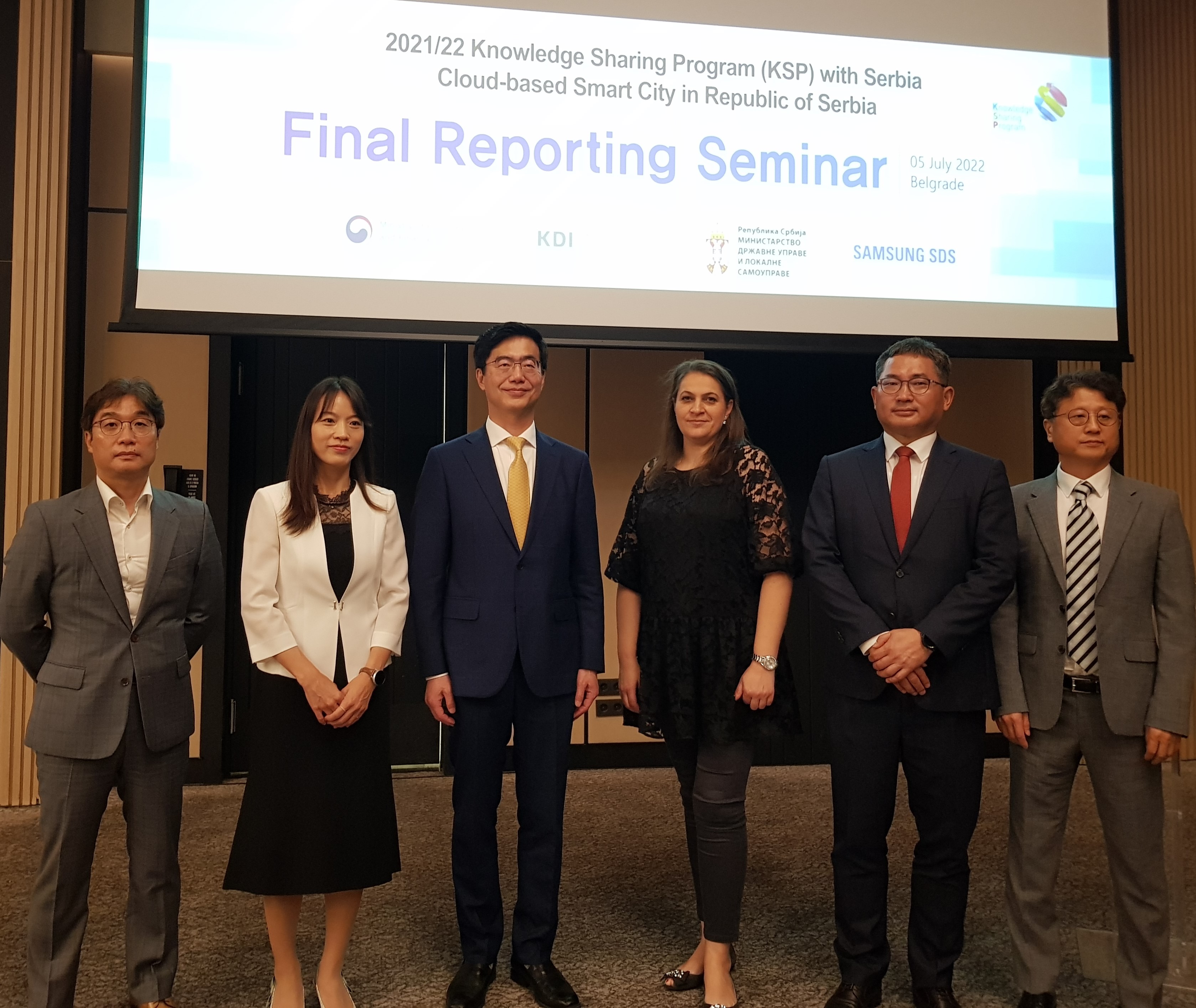
“Although the Government of the Republic of Serbia and the Ministry of Public Administration and Local Self-Government have significantly improved the field of e-government in the previous period, ensuring that the public administration provides a better, faster and cheaper service to the citizens and the economy, there is still room for normative regulation so that we can be fully ready for the development of smart cities in our country”, the State Secretary of the Ministry of Public Administration and Local Self-Government, Maja Mačužić Puzić, has pointed out during the today’s conversation with the partners from the Republic of Korea, with whom MDULS is implementing the project “Development of Cloud-based Smart Cities”.
She has recalled that Serbia had significantly improved the concept of “Open Data”, i.e. of data sets which institutions publish on the Open Data Portal, in order for such data to be utilized for the development of new services; hence, as a result, the concept of eCity was introduced into the eGovernment Development Programme. This concept requires the opening of the data by as many institutions as possible, so that they may contribute to the creation of Smart City solutions and user services for citizens, without large financial investments.
She has also stated that MDULS shall continue to support and encourage city and municipal administrations to make their data open for their further use, to introduce new technologies and as many e-services as possible into their work and make them available to both the citizens and the economy, because this is the only way we can consider the prerequisites for the development of the eCity concept, which provides the end-users with the most modern services of highest quality in a short time-frame and at the lowest price.
“The experience of the Republic of Korea and the way their Smart Cities function gives us room to believe that we in Serbia can build, if not identical, then at least a similar model of a Smart City. Field work in Petrovac na Mlavi, Šid and Bečej, as the first three municipalities included in the project, shall provide us with guidelines for further creation of the Smart City platform in Serbia and the development of services that will be modern and tailored to our citizens and their needs.” Mačužić Puzić has concluded.
The Ambassador of the Republic of Korea to Serbia, Lee Jaewoong, and the representatives of the Ministry of Finance of the Government of the Republic of Korea, the Korea Development Institute and the Samsung company, have presented the results of the analysis of the situation in the first three pilot cities in Serbia where the Smart City project is being implemented, namely for the municipalities of Petrovac na Mlavi, Bečej and Šid. A model for the introduction of 19 services in six sectors for each of the three cities was presented, in order to commence with the creation of a hardware-software solution for the functioning of the Cloud-based Smart Cities.
The Smart City model in Serbia shall bring a better quality of life to citizens in urban areas, a greater range of services to the economy, but also to the local administrations themselves, which shall provide more modern services in the areas of public transport, infrastructure, healthcare, sustainable development, security, tourism and culture by utilizing modern technologies.
The project “Development of Cloud-based Smart Cities” is implemented by MDULS in cooperation with the Government of the Republic of Korea, the Korea Development Institute and the Samsung company, in three LSUs in Serbia, which will be the first to implement the Cloud-based Smart City technology.



